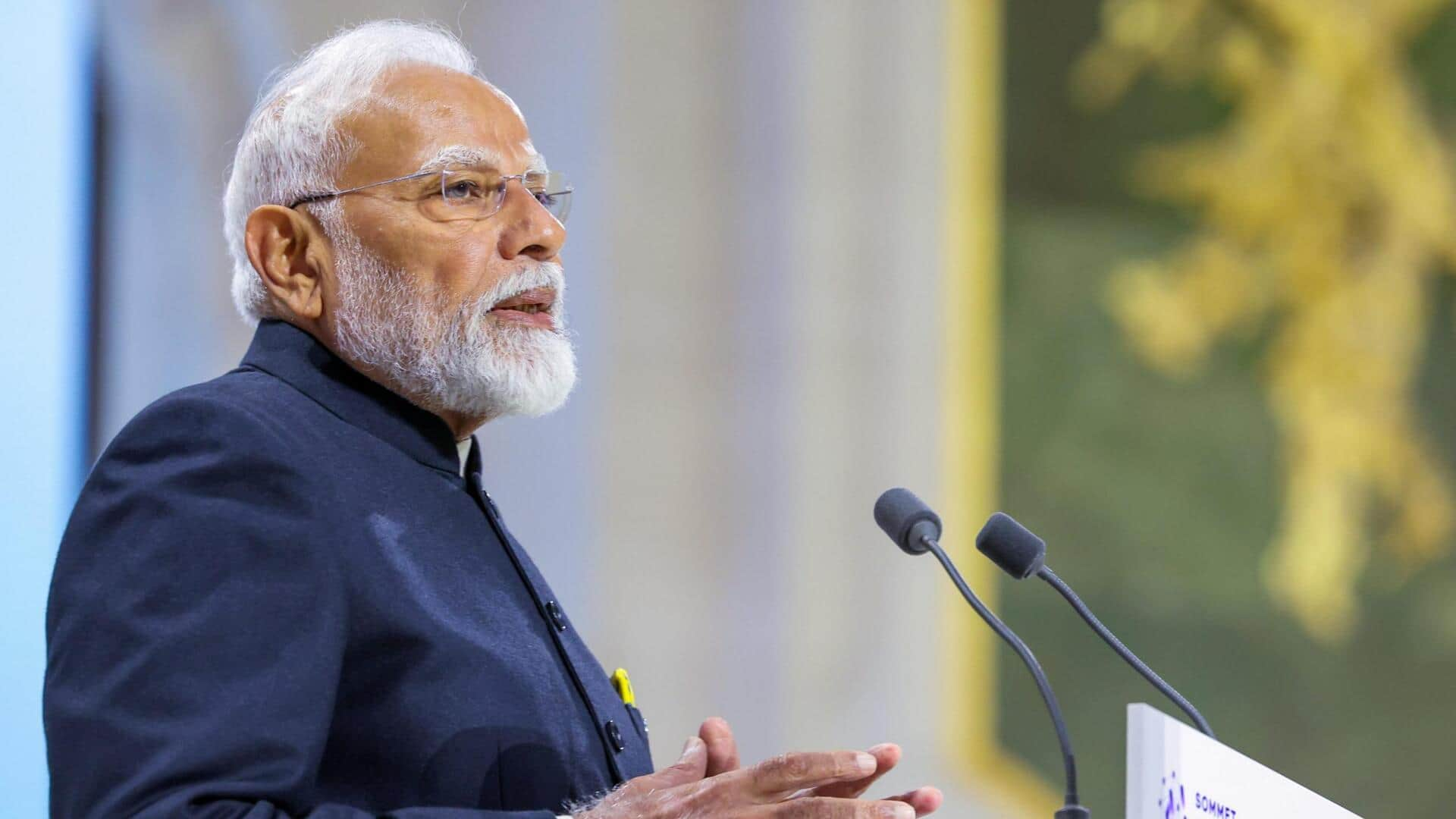
'Must be sustainable, job optimistic, clean': Modi's message for AI
What's the story
Prime Minister Narendra Modi has highlighted the importance of developing unbiased data sets and adopting open-source models at the AI Action Summit in Paris, which he co-chaired.
He called for global collaboration to leverage artificial intelligence (AI) for economic growth, social transformation, and sustainable development.
This comes with China's DeepSeek model threatening to outpace Western rivals like OpenAI and Google in the backdrop.
Sustainable AI
PM Modi advocates for sustainable AI and clean energy
PM Modi also touched upon the high energy demands of AI, pushing for cleaner energy sources like nuclear power.
He outlined that "sustainable AI does not only mean using clean energy. AI models must also be efficient and sustainable in size, data needs, and resource requirements."
French President Emmanuel Macron echoed this sentiment by emphasizing France's dependence on nuclear energy with "plug, baby, plug," in an oblique reference to US President Donald Trump.
Job optimism
PM Modi expresses optimism about AI's impact on jobs
On the topic of employment, PM Modi remained optimistic about AI's impact on jobs.
He said technology changes the nature of work instead of taking it away and pushed for "skilling and re-skilling" programs.
This is in stark contrast to earlier government reports, which had warned about AI's potential threats to low-skill jobs in India.
Responsible AI
PM Modi calls for responsible AI governance and human centrality
At the summit, PM Modi called for a global framework to govern AI responsibly, ensuring access for all, especially in the Global South.
He asserted that humans remain central to technological advancement despite AI's rapid development.
This view was supported by US Vice President JD Vance, who stated that AI will enhance productivity without replacing humans.
AI progress
PM Modi highlights India's achievements and future AI goals
PM Modi also highlighted India's strides in digitalization and its work to responsibly harness AI during its G20 presidency.
He pushed for democratizing technology through people-centric applications while tackling cybersecurity issues.
Ending his address, he called for investment in skilling people for an AI-driven future, stressing the need to build quality data sets free from biases and adopt open-source models.